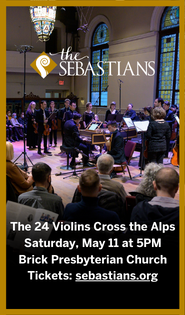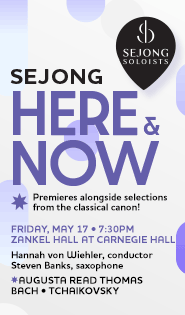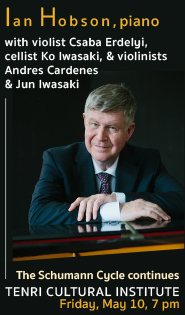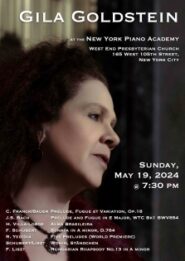Juilliard415 serves up lively playing and offbeat rarities from the Saxon Court
Versailles might be the first name in royal musical splendor during the baroque, but it was not the only court that supported musicians and composers—rivaled, among others, by the court at Dresden, the capital of Saxony. In the 17th century, the Saxon court featured the likes of Schütz and Praetorius, and as Juilliard415 displayed Sunday afternoon at Corpus Christi Church, the musical glories continued into the 18th century.
Performing as part of the Music Before 1800 season, Juilliard’s period-performance training ensemble put on a program of composers who may have been lesser known than 18th century peers like Handel, but who captured some of the highly personal styles and idiosyncratic methods that make the period so rich.
Led (at times from the harpsichord) by British conductor Laurence Cummings, the ensemble delivered a meaty sound. While they may not have the highest level of refinement one finds with groups like The English Concert, the seemingly eccentric mix of lean strings, throaty double reeds, and pumping horns was part of the pleasure. Sometime one prefers the baroque to be more than a little spiky and raw.
That eccentricity of sound was a fine fit for the music on the program. One thinks of the stylishness of the French baroque as being about gesture, while the German and Central European composers experimented with form and structure. That was a compelling part of the concert from the opening work, Jan Dismas Zelenka’s Hipocondrie Overture. The meaning of the music is obscure, but the bass player and composer’s expressive harmonic motion and forceful rhythms brought out high energy in the ensemble.
There were two works by Johann Friedrich Fasch, the ensuing Sinfonia for strings in G minor, and the Concerto in D major (for pairs of flutes, oboes, and bassoons), which finished the concert. The virtue of this music was the straightforward manner and the focus on changes in orchestration and harmonies. This conveyed a near-modern sensibility that made for a strong and satisfying dramatic sense. The orchestral colors in the Concerto were rich, but the Sinfonia was perhaps the most directed, forceful performance of the afternoon.
There were three other concertos: Johann Georg Pisendel’s Violin Concerto in D major (the soloist was Ryan Cheng); Johann David Heinichen’s Concerto in G major for Violin, 2 Flutes, and 2 Oboes; and the Concerto for Flute and Violin in E minor, attributed to both Heinichen and Telemann. Cheng’s superb technique and energy made the Pisendel sound more attractive than its workmanlike quality, and the other two pieces were interesting in both how they worked and how they were played.
The G major piece was an utter oddball. To being with, there were two bassoons in the solo line, playing a brief concertante part, and the sheer size and separation of orchestra and soloists made for something close to a work for two orchestras. Then there was the bizarre form, a standard and handsome fast-slow-fast concerto, with instrumental pairs taking turns with the solo runs, and then an entire Italianate dance suite tacked on the end, finishing with a Menuet. While the music became less interesting as the work went on, ample interest was provided in wondering what the hell would happen next.
The E minor concerto was another highpoint of the concert. The playing of violinist Ravenna Lipchik, paired with flutist Ellen Sauer, sliced through the music with the kind of pointed driving toward the final note that is the height of baroque playing. Her solo run in the middle Presto movement was spectacular and elicited spontaneous applause in the crowd.
The encore was Praetorius’ carol “Quem pastores laudavere.” This was an absolutely beautiful treat. Cummings first led the orchestra then, as they played, turn to the audience and sang the vocal part. The orchestra then put down their instruments and sang as well, a stunning and resonant transition, before picking up their instruments again. The string players continued singing while playing to the end—more than a sound, it was a human connection that went beyond the normal traditions of concertizing.
Twelfth Night plays an all-Handel program, 4 p.m., Sunday, January 15, 2023. mb1800.org






